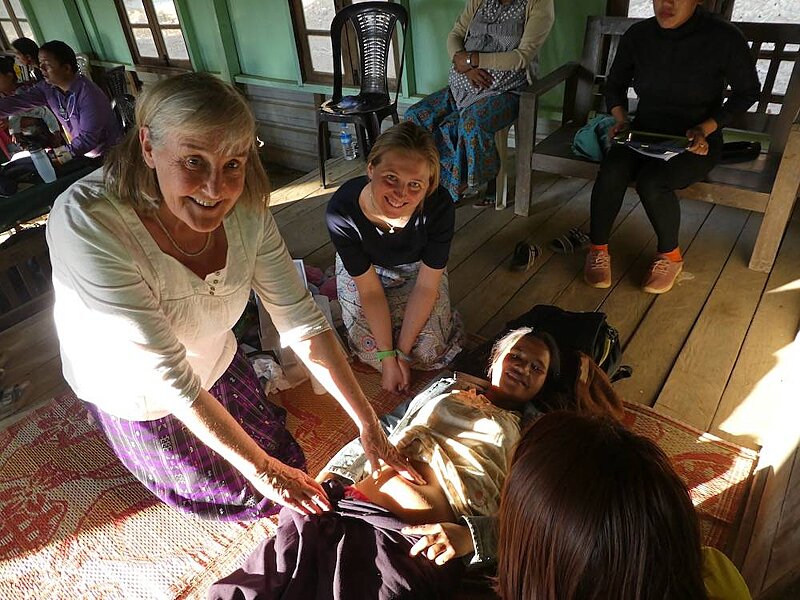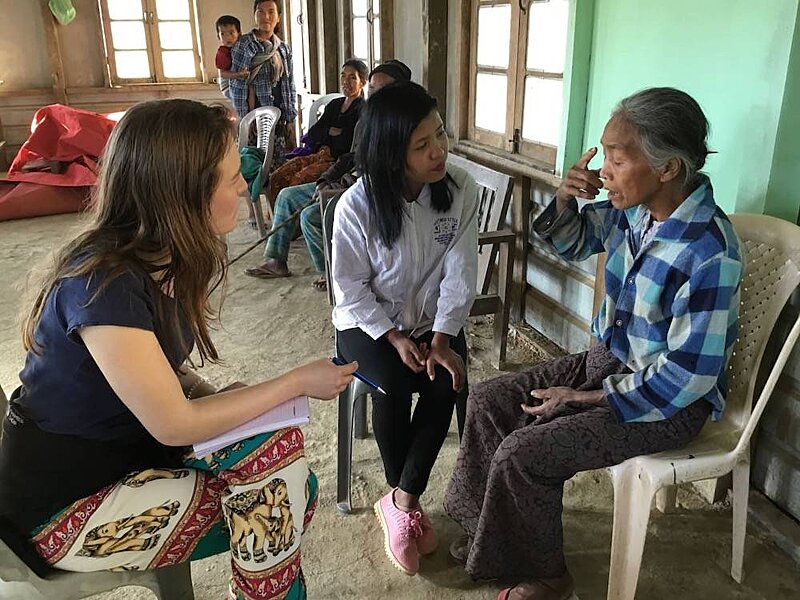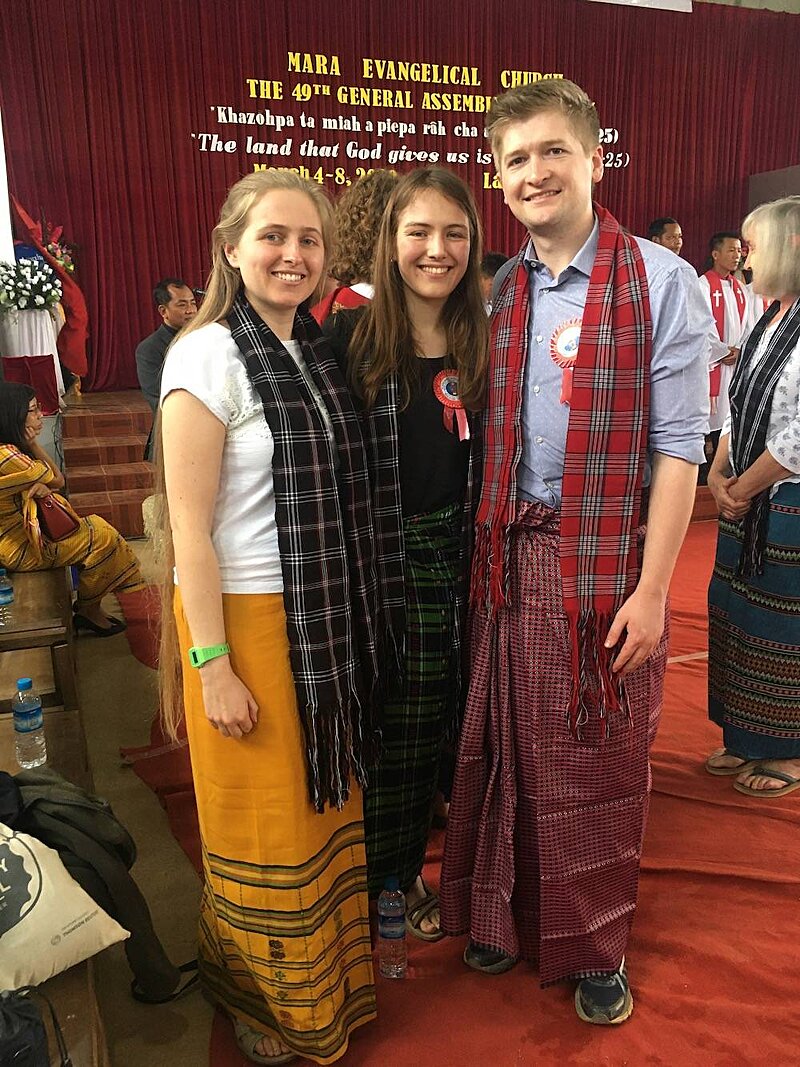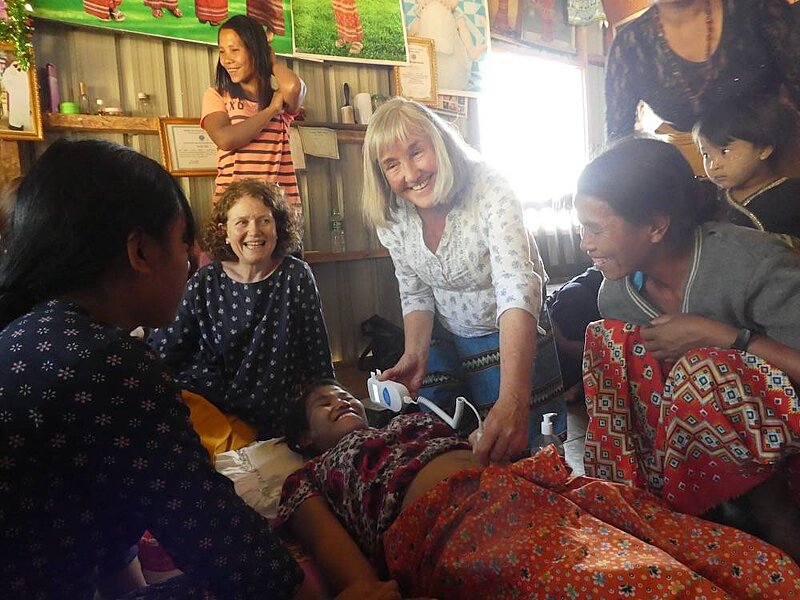Latest news
A desert trek for Health & Hope
Posted on 18th June 2020 by Philippa Wilford
Jean O’Hara is setting off for the trek of a lifetime, and raising money for Health & Hope in the process.
We caught up with Jean during Lockdown to find out how her training is going.
Hi Jean! You are planning on trekking across the Jordan desert in October. What on earth inspired you to take up such a challenge?
I turn 60 this year, and decided I needed to mark it by setting a goal. I have raised money by taking part in 10-25km sponsored walks in England before, but I wanted to do something really big. So, on New Year’s Day, my friend Jill and I signed up for five days of trekking across the Jordan desert, from the Dead Sea to reach Petra.
I have never been to this part of the world before, and the more I read about it, the more exciting - and daunting - it sounded. The terrain is varied and difficult. It is hot during the day, and gets very cold at night. It is a supported trek, but I am under no illusions that it will test our strength and stamina.
Has Lockdown affected your preparation?
Yes, it has certainly made things harder! The company we are going with gave a useful training programme, but it was hard to stick to because initially we were only allowed to exercise locally for a limited time each day. Also, the trip itself felt uncertain, and so motivation to keep on training became difficult for a while.
However, with Lockdown easing, and being able to go further afield and to meet up and train with my friend Jill means we’re back on track, motivated and feeling hopeful that it will go ahead.
What made you choose Health & Hope as your charity to support?
My trip is fully self-funded, but I thought it was a good opportunity to raise some money for a worthwhile cause.
I’ve raised money for large charities before. This time I wanted to support an organisation where I could see my money make a specific difference.
My dad was Burmese, born and raised in Rangoon, so this part of the world appealed to me. Both my parents have known the struggle of poverty and hardship and the value of education. Seeing the way Health & Hope seeks to support local communities in these particular areas is exactly the type of work I want to enable.
I trained in medicine and have spent my career as a psychiatrist, working with people who live with severe mental health problems. I chose to further specialize in the mental health of people with learning disabilities. They often experience adversity, trauma, stigma and discrimination and struggle to have their needs met and their voices heard. Projects such as Education for All are life-changing, and so Health & Hope's targeted fundraising for initiatives such as these is fantastic. As a fundraiser, I can see the difference my support will make.
Also, I read the story of Dr Sasa — what an inspirational man! He has dedicated his work to giving back to his community.
Thank you for your time, we will look forward to hearing how you get on!
If you would like to support Health & Hope through taking part in a fundraising challenge, and would like ideas and support, then do get in touch with our Partnerships Manager, Philippa by emailing pip@healthandhope.org.
Medical elective student reflections on trip to Lailenpi
Posted on 19th April 2020 by Chris Jones
My visit to Lailenpi was one of the most revitalising experiences that has ever happened to me. We were shown so much love; it was incredibly humbling. One of the lessons I would pass on to anyone who visits would be: always pack a jumper! If you think you’re leaving your accommodation for just one hour, it could very well turn out to be for seven, and the evenings get very cold!
Our time was incredibly full, even though it was sadly shorter than anticipated due to having to leave early because of the Covid-19 outbreak. We are so grateful to all the people who made us welcome, and to the incredible Health and Hope team who taught us so much during our time working with them. There are many experiences that I could share, but I thought I would highlight the more ‘flexible’ attitude to timings that I learned to embrace, which was illustrated on one of our days travelling out to a remote village in order to run training and a health clinic.
The village was a two hour drive from Lailenpi, and we went with Midwifery Trainers, Maaike and Frances, who had come from the UK to run workshops. Two local nurses came with us to help and act as interpreters.
We arrived around mid-morning and, as with everywhere, were made to feel incredibly welcome. We were offered some lovely local foods including eggs, bananas and an amazing tomato salad!
We’d come mainly to see how the Traditional Birth Attendants were getting on. Many of them had been trained by local people, and so this was a chance for Maaike and Frances to assess how well this ‘passing-on’ of training is working.
We also ran clinics for women in the village who were either pregnant or hoping to become pregnant, and for mothers to bring ill children.
Whilst we saw a range of different problems within the clinic, there were three main issues for children that kept recurring: diarrhoea, fever and children who weren’t eating properly. Many of these issues were easy to solve and required nothing more than health education. Often local villagers are hoping for medication, as this is seen as the only effective treatment; it is an effort to encourage people that much simpler solutions are often all that is needed.
For example, guided by Frances’ wisdom, we discovered that nearly all of the children with diarrhoea didn’t wash their hands. We were able to offer advice around good hand hygiene as well as discussing how to prepare a simple oral rehydration solution and advocating the benefits of continued breast feeding, if age appropriate and possible.
A surprise came for me when treating a five-year old child who wasn’t sleeping properly. It turned out he was using a mobile phone at bedtime. I’d never imagined that too much screen time would be an issue in rural Myanmar!
After we had treated all the children, there were some adults desperate to be seen, and so naturally we agreed to do so. Then, whilst we were finally packing away, one more lady came and begged us to see her as “just one last person.”
I’m so glad that we agreed. It saddens me that that this poor lady had been suffering with a urinary infection for over a year without being able to access help. Despite our limited resources due to the mobile nature of the clinic, we were able to prescribe her a course of antibiotics, and ‘sign post’ her to the Community Health Worker for follow-up care.
At the end of this long clinic, we were treated to another feast. Before we set off for home, we were invited to the local TBA trainer’s house to meet her children. Here again, we were made more than welcome — the hospitality really is incredible. This time together was such a treat. We were shown around the village, and I felt better able to understand village life.
I was struck by just how far some of the TBAs have to travel to attend births, often on foot. Their commitment to their voluntary roles is humbling.
My experience with Health and Hope left me realising that there is a vast amount that can be done to improve the health of communities without medication. Whilst posters and public health sessions have already been provided, many communities have yet to fully embrace the significance of nutrition and hygiene for daily health and well-being.
People were often visibly disappointed when we dispensed health advice, rather than a course of medication for them or their children. I hope that Health and Hope continue to develop this area of training for the Community Health Workers and TBAs as bringing about this change in mindset takes time.
I also hope that I can return to Lailenpi one day — maybe in a few years’ time when I have been working as a qualified doctor for a while. I would like to go back with more knowledge and skills to pass on. It would be wonderful to see the progress of the work. I will never forget the commitment of the people I have met. They are incredibly knowledgeable, and are clearly having an amazing impact. They are saving lives.
Lailenpi Airstrip Update
Posted on 17th April 2020 by Philippa Wilford
We're delighted that progress on the Lailenpi Airstrip continues despite the lockdown, with the team improvising to find the materials and equipment needed to get the runway complete on time.
Terry remains the lead engineer on site and the enormous excavation work is almost finished. A large rock in the middle of the mountain (visible in the video fly through) continues to need daily blasting. With dynamite in short supply it is one of remaining challenges to overcome!
If disruptions to source materials can be avoided, paving for the airstrip will begin in the third week of April with an aim to be complete at the end of May.





